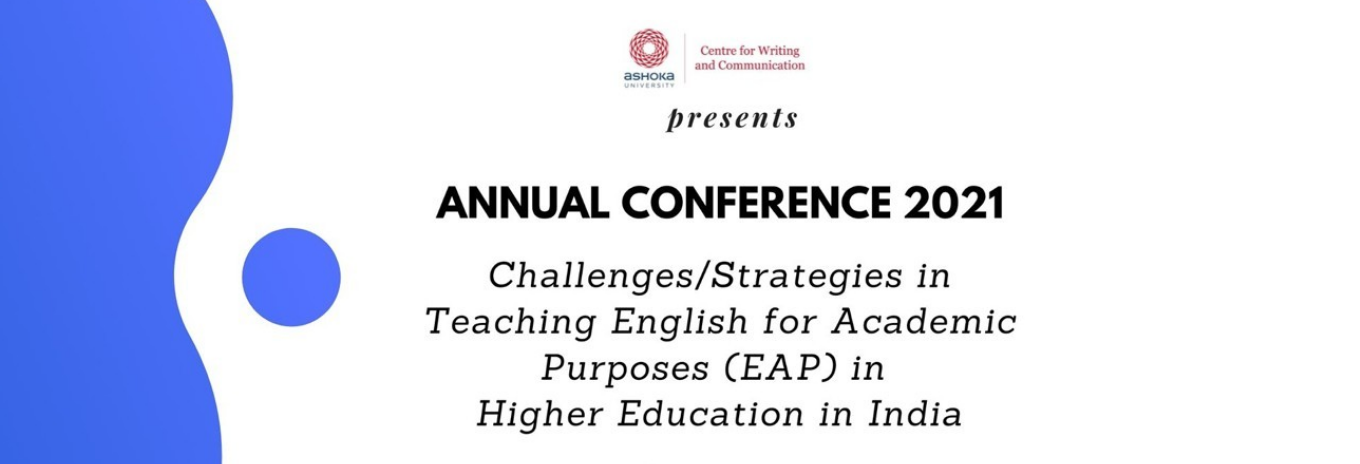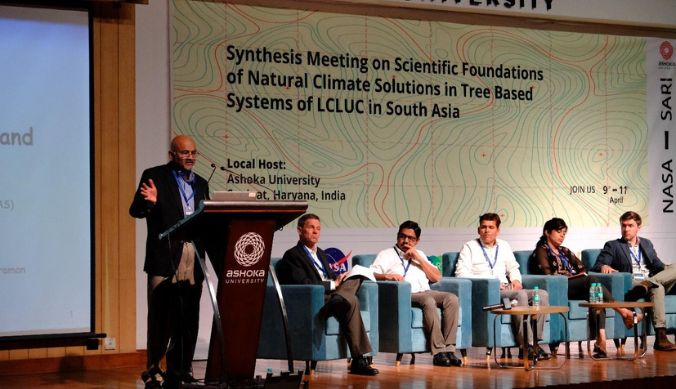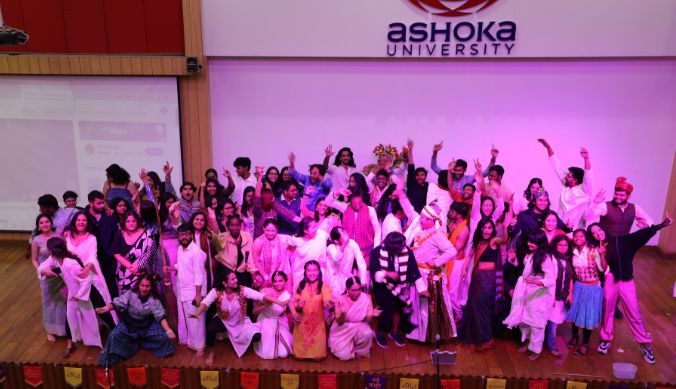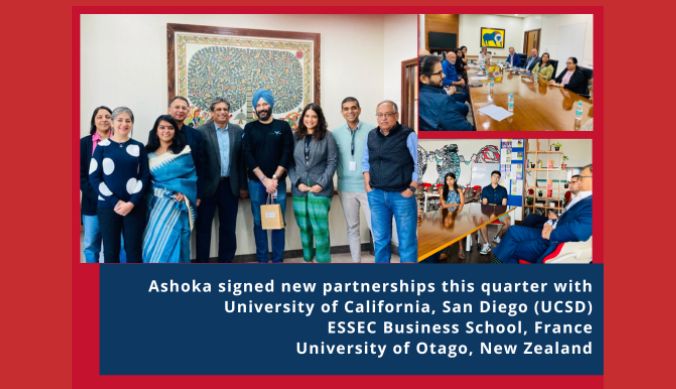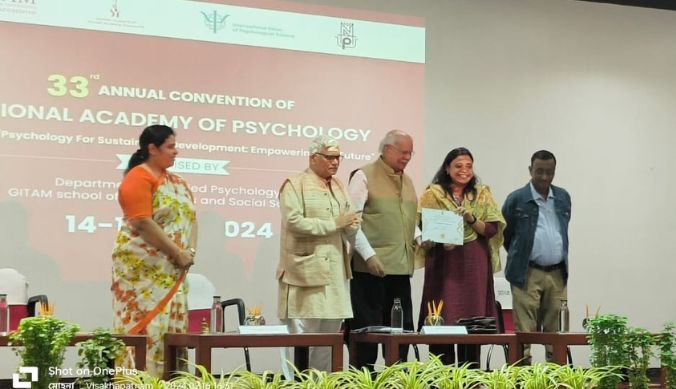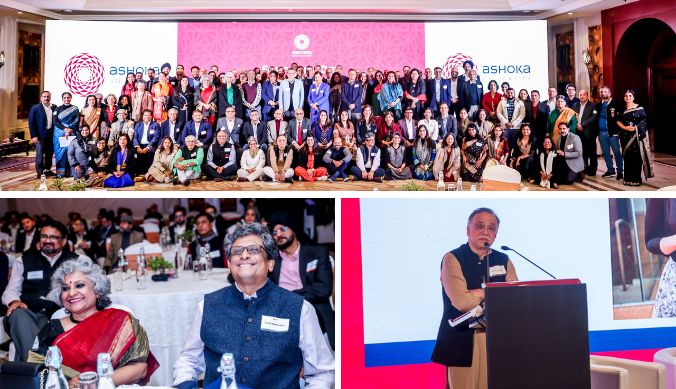Challenges/Strategies in Teaching English for Academic Purposes (EAP) in Higher Education in India
23 and 24 April, 2021

Office of PR & Communications
1 June, 2021 | 2m readThe CWC annual conference, 2021, in seeking to bring together English Language Teaching (ELT) practitioners and experts in conversation with each other, focused on innovative and inclusive language teaching approaches in university classrooms in India. This dialogue was accompanied with a critical reflection on the absence of an inclusive English language pedagogy suitable for a multilingual university classroom and a simultaneous meditation on steps that need to be/have been taken in this direction, both at the level of deciding on appropriate pedagogical approaches as well as syllabi making, keeping in mind the varying levels of English proficiency in a diverse, multilingual student body.
The conference proceedings started with a discussion on the role played by Writing Centres/Writing Studios – their primary objectives – to achieve pedagogic and social inclusion, and the hurdles and challenges which come up, for instance, in trying to integrate writing pedagogy in engineering courses such that the students learn both writing and critical thinking along with the chosen academic subject.
The following panels were investigations into university-level EAP students’ E-L-T (Expectations, Learning experiences and involved Teaching strategies), tracing down common trends and themes in EAP courses around Indian institutions, which was accompanied with a reflection on some of the practical concerns faced in the English departments of India – the divide between teaching literature and language teaching, for instance – suggesting some remedial measures both at policy and individual levels. The following papers included a case study highlighting an example of effectively interweaving language courses into the curriculum at the undergraduate level, an examination of different levels at which students can be provided differentiated language education, and a deliberation on the usefulness of enhancing writing and reading skills through collaborative learning and peer feedback.
In addition to the panels, the conference also saw two roundtable discussions which focused on the Academic Bridge Programme and the English Communication courses offered by the CWC which aim to address the English language needs of Ashoka students, which included a conversation on the role of one-on-one mentoring and discipline specific support in English language learning. The objective here, in approaching ‘writing well’ as comprising a teachable and transferable set of skills and strategies, was to attempt a dialogue where certain methodologies and approaches get shared regarding how to integrate academic writing, language teaching, and critical thinking.
The closing keynote by Dr. Giridhar Rao comprised a discussion on the manner in which ‘reading for pleasure’ is among the most effective strategies for acquiring language as well as critical thinking skills, which explored some of the implications of this position for English-language writing programmes in multilingual India.





